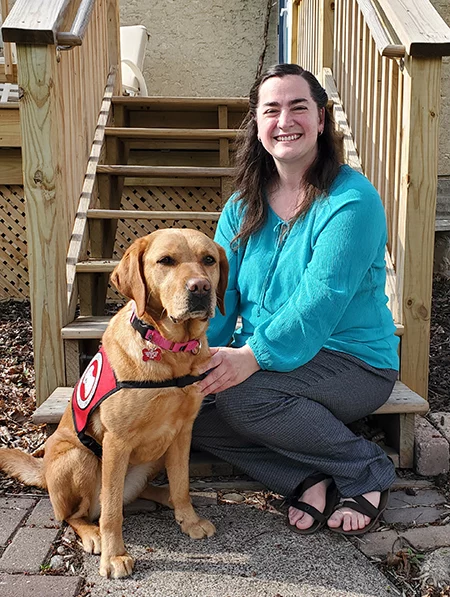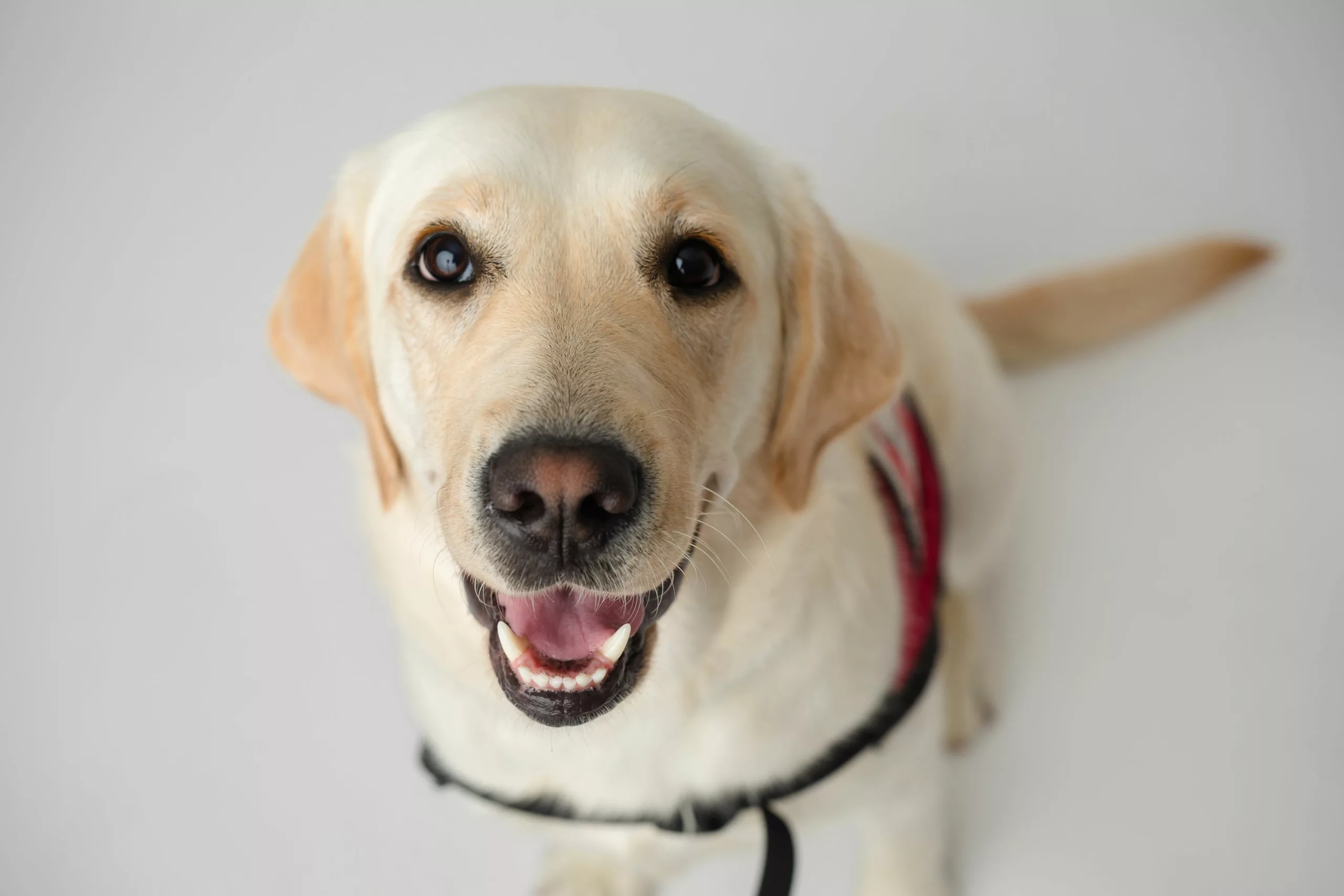Jasmine was healthy and active growing up and throughout her teenage years. She says, “I hiked through the mountains of Honduras barefoot because my flip-flops broke, jumped into a waterfall and all these things. Nothing really stopped me, and yet POTS did.”
People with POTS, or postural orthostatic tachycardia syndrome, might experience lightheadedness, faintness or a rapid heartbeat when changing body positions. Jasmine explains, “It seems like such a minor movement to reach down and get a pen, but … my body has to make up for that change in blood pressure and doesn’t do a good job.” Before she started experiencing symptoms at age 18, Jasmine felt she could just press through anything difficult if she just set her mind to it. However, “POTS is the opposite of that,” she states. “If I don't give myself the rest and kindness I need, it just gets worse.”
Jasmine was thrilled to learn about Can Do Canines, and shares, “When I reached out, they let me know that someone actually had experience with training dogs for POTS, which is more encouraging than anything else that I had heard.”
 Soon, she met an earnest yellow Lab named Ursa, who was trained to pick up pens and so much more. This is a task that Jasmine says is constant throughout the day, whether it is at her office for the St. Paul Chamber Orchestra or at home. “When I have her get things for me, even when I’m feeling okay, it actually keeps me more even-keeled the rest of the time,” she says. Ursa will also retrieve a phone and snacks, give her laundry items to put in the machine, tug open doors and get help if needed. She is also a skilled snuggler–something that is beneficial beyond just an emotional level. Jasmine describes that after going for walks, Ursa will lie across her to stabilize her blood pressure, essentially helping the blood stay in the areas it’s supposed to be.
Soon, she met an earnest yellow Lab named Ursa, who was trained to pick up pens and so much more. This is a task that Jasmine says is constant throughout the day, whether it is at her office for the St. Paul Chamber Orchestra or at home. “When I have her get things for me, even when I’m feeling okay, it actually keeps me more even-keeled the rest of the time,” she says. Ursa will also retrieve a phone and snacks, give her laundry items to put in the machine, tug open doors and get help if needed. She is also a skilled snuggler–something that is beneficial beyond just an emotional level. Jasmine describes that after going for walks, Ursa will lie across her to stabilize her blood pressure, essentially helping the blood stay in the areas it’s supposed to be.
Being able to get out and go for walks is important to this young mother of two. “I can walk my 7-year-old son to school now,” says Jasmine. She also speaks of the effects of POTS beyond just the physical, saying, “It’s kind of hard to express how much POTS can affect my mental acuity. When my blood pressure dips and my body is really trying to focus on keeping me physically stabilized, my thought processes slow down. So it’s just really nice to be more present and aware in interacting with my family.” She adds, “It’s like I’ve been given a lot of my life back.”
That life also includes her husband–a fellow Army veteran and Arabic speaker. The two of them served as relief workers in the country of Jordan and provided domestic help for a couple of years during the Syrian refugee crisis. Jasmine notes, “Peacemaking is an important part of my life as a person, so it’s just been really integral to have [Ursa] available so I can do more with my time.”
“Utter gratefulness” is what Jasmine is feeling these days. She says, “I’m just really thankful that so many people have come together to not only make Ursa possible for me but to make it possible for other people to have assistance dogs.”
Jasmine doesn’t take health for granted and recognizes how lucky she is to have a Can Do Canine in her life. “Now to have Ursa here, I know I won’t be hiking through mountains anytime soon, but being able to walk around Minnesota state parks just feels so good and so right and normal. … “Ursa is my hero. She’s just helped in so many ways.”
Thank you to all those who made this partnership possible:
Puppy Raiser — Federal Correction Institution - Waseca
Great Start Home — Megan Wetterlin and Tawsif Mahmud
Whelping Home — Wendy Jagt
Special Thanks — Traci Norum, Stanley Correctional Institution
Team Sponsor — Linda Calvert

 First Co-Puppy-Raising Experience a Success!
First Co-Puppy-Raising Experience a Success!



